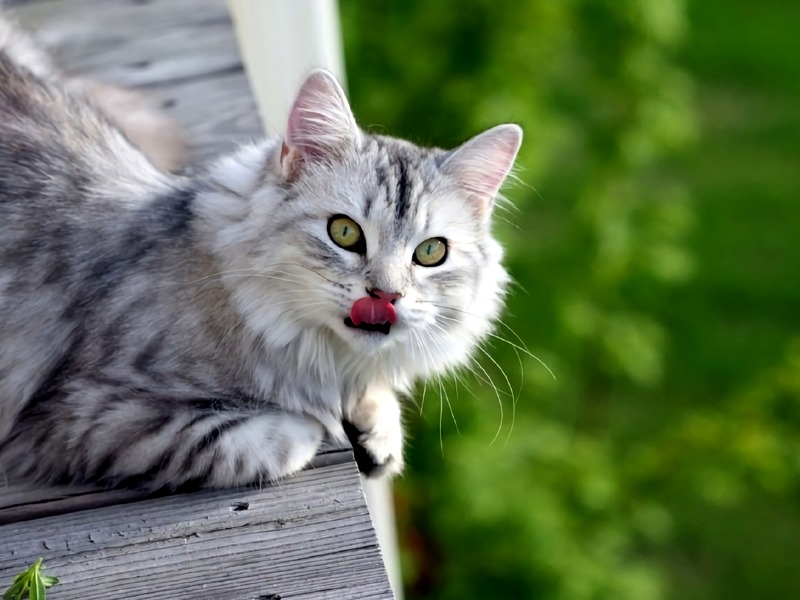Cat Vomiting, how to help

Understanding the Common Issue of Cat Vomiting
According to recent studies, over 50% of cat owners report that their pets have experienced vomiting at least once in their lifetime. This alarming statistic highlights the importance of understanding and addressing this common issue effectively.
The Causes Behind Cat Vomiting
Cat vomiting can be caused by a variety of factors, ranging from minor issues to serious medical conditions. As an owner, it's crucial to identify the cause in order to provide appropriate care for your pet.
Dietary Indiscretion
- Definition: Dietary indiscretion refers to instances where a cat ingests something inappropriate or excessive food.
- Symptoms: Vomiting, lethargy, and loss of appetite.
- Treatment: If your cat is vomiting due to dietary indiscretion, it's best to withhold food for 12-24 hours and provide small amounts of water. Consult a veterinarian if symptoms persist or worsen.
Hairballs
- Definition: Hairballs are formed when cats groom themselves, ingesting fur that accumulates in their stomachs.
- Symptoms: Vomiting of hair clumps and occasional coughing or hacking.
- Treatment: Regular brushing to reduce fur ingestion, offering hairball remedies, and feeding wet food can help prevent hairballs.
Dietary Intolerance
- Definition: Dietary intolerance occurs when a cat's digestive system reacts negatively to certain foods.
- Symptoms: Vomiting, diarrhea, and lethargy.
- Treatment: If you suspect dietary intolerance, switch back to your cat’s previous diet or try hypoallergenic options. Consult a vet for guidance on the best food choices.
Infections
- Definition: Infections can be bacterial, viral, or parasitic and often lead to vomiting along with other symptoms.
- Symptoms: Fever, loss of appetite, lethargy, and dehydration.
- Treatment: A veterinarian will diagnose the infection through tests and prescribe appropriate medications. Follow their advice for recovery.
Medical Conditions
- Definition: Persistent vomiting can be a symptom of serious medical conditions such as kidney disease, liver failure, or cancer.
- Symptoms: Frequent vomiting, weight loss, lethargy, and changes in appetite.
- Treatment: Immediate veterinary care is essential. Your vet may recommend further diagnostic tests like blood work, X-rays, or ultrasounds to determine the underlying cause.
When Should You Take Your Cat to a Vet?
If your cat vomits frequently or shows signs of distress alongside vomiting, it's crucial to seek professional help. Here are some scenarios that warrant an immediate visit:
- Vomiting accompanied by blood.
- Severe lethargy and weakness.
- Frequent retching without producing vomit.
- Persistent vomiting for more than 24 hours.
Preventive Measures to Keep Your Cat Healthy
To reduce the likelihood of cat vomiting, consider these preventive measures:
- Dietary Management: Ensure your cat is on a balanced diet and avoid sudden changes in food.
- Regular Grooming: Brush your cat regularly to minimize hair ingestion and formation of hairballs.
- Veterinary Check-Ups: Schedule regular visits for routine health checks and vaccinations.
Tips for Managing Cat Vomiting at Home
If your cat is vomiting but not showing severe symptoms, you can try these home remedies to provide relief:
- Withhold Food Temporarily: Offer small amounts of water or ice cubes if your cat is dehydrated.
- Provide Hairball Remedies: Use commercial hairball treatments or natural alternatives like canned pumpkin to help expel fur from the stomach.
- Create a Stress-Free Environment: Ensure your home environment is calm and stress-free, especially if vomiting is triggered by anxiety.
Conclusion
Cat vomiting can be both concerning and frustrating for pet owners. By understanding the common causes and knowing when to seek professional help, you can ensure your cat receives appropriate care and treatment. Regular vet visits, proper diet management, and preventive measures are key to maintaining your cat's health and happiness.
Takeaways
- Cat vomiting is a prevalent issue affecting over 50% of cats at some point in their lives.
- Dietary indiscretion, hairballs, dietary intolerance, infections, and medical conditions are common causes of cat vomiting.
- Immediate veterinary care should be sought if your cat shows signs of severe distress or persistent vomiting.
- Maintaining a balanced diet, regular grooming, and stress-free environment can help prevent cat vomiting.
